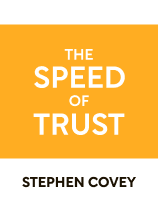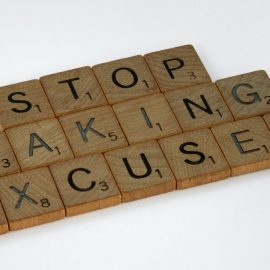

This article is an excerpt from the Shortform book guide to "The Speed of Trust" by Stephen M. R. Covey. Shortform has the world's best summaries and analyses of books you should be reading.
Like this article? Sign up for a free trial here .
What behaviors should you adopt to become more competent? How does demonstrating competence help others trust you?
Author and former CEO Stephen Covey believes building competence relates to demonstrating trustworthy behaviors. In his book, The Speed of Trust, Covey explains that your most valuable interpersonal currency is having trust in your relationships.
Read on to learn Covey’s advice on how to be more competent by building trust with others.
Trust and Competence
Trust is a critical yet undervalued prerequisite for success in the modern world. Trust deepens relationships, creates opportunities, and improves the efficiency of interpersonal interactions. In The Speed of Trust, Stephen Covey argues that you’ll learn how to be more competent when you make trust a top priority.
To be more competent, how trustworthy you are matters, according to Covey. He explains that one of the fastest ways to build trust is to get people the results they are looking for. The more you deliver results, the more freedom and flexibility you have in your relationships because people will trust you to get the job done with little oversight. In contrast, you pay a trust tax when you make commitments you can’t keep. According to Covey, this is why you need to be realistic and honest about the projects you take on.
| Projecting Proficiency When learning how to be more competent, demonstrating proficiency with your results might not be enough to earn people’s trust. Research suggests that projecting confidence can make people more likely to trust you even if you don’t deliver results. Our collective tendency towards confirmation bias may explain this, as we tend to look for and focus on the results we expect and use these results to reaffirm our beliefs. For example, say two equally competent people are assigned a task. One accepts the task with the statement, “This is right up my alley; I’m going to rock this assignment!” The other quietly accepts the task saying, “I hope you’ll approve of my work.” We’re likely to perceive the more confident person as more competent. Even if the quality of the confident person’s work isn’t as high as the humble person’s, we might still rate them as more competent, thinking maybe they had a bad day or this simply wasn’t their strongest performance. Since people’s impression of your proficiency is influenced by your confidence, producing results and broadcasting your proficiency may earn you more trust than proficiency alone. |
Be Explicit to Gain Trust
Explicit expectations are important for trusting relationships. Covey notes that many trust taxes result from different ideas about what an outcome should look like. For example, results might look like a success to one person and a failure to someone else if they are not on the same page before a project starts. To be more competent, how quickly you clarify expectations affects how much others trust you.
(Shortform note: Using clarity is a good method to use when learning how to be more competent. Clarity is particularly important when you’re trying to establish trust in a new relationship where the other party has no context for your trustworthiness. When you’re clear about your goals from the start, people can trust your intentions (whether or not they agree with them) and can better understand your thought process and decision-making. Research confirms Covey’s belief that being transparent and explicit about your goals engenders trust while being ambiguous makes you seem less trustworthy.)
An explicit system of accountability is another way to build trust and learn how to be more competent. Covey explains that while conversations about accountability can be uncomfortable, clear and mutually agreeable contracts ultimately make people feel more comfortable and build trust because everyone knows what to expect.
| How to Be More Competent: Create Accountability As Covey explains, when done well, accountability builds trust, especially when systems of accountability are mutually agreeable. In fact, people are four times more honest and open to discussing their mistakes when they feel the systems of accountability that they’re being held to are fair. Unfortunately, many workplace systems of accountability are built on rating systems that categorize people by faults instead of strengths, making them feel defensive and resentful rather than comfortable. Research from Gallup shows that just 14% of employees feel motivated by their company’s accountability methods, and only 21% feel that they’re evaluated on criteria that they have control over. These data support the need for more dialogue between management and employees so that everyone feels confident that they are being evaluated by a system built on trust. |

———End of Preview———
Like what you just read? Read the rest of the world's best book summary and analysis of Stephen M. R. Covey's "The Speed of Trust" at Shortform .
Here's what you'll find in our full The Speed of Trust summary :
- Why trust is the ultimate key to success
- A roadmap for building and leveraging trust
- An explanation of Steven Covey's “four cores of credibility”






